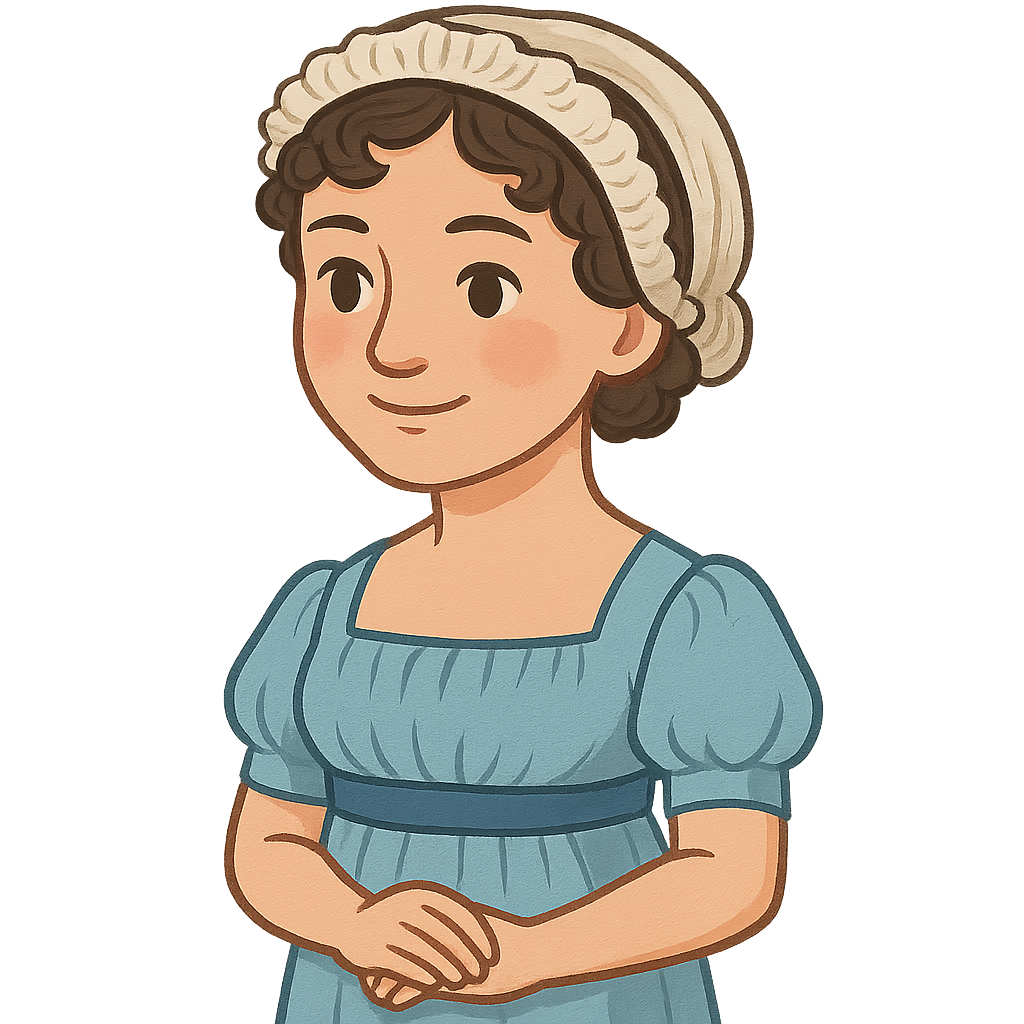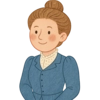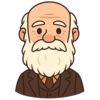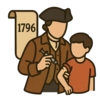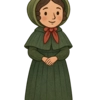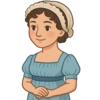Jane Austen
Hello there. My name is Jane Austen, and I have a few stories to tell you—not just the ones I wrote in books, but the story of my own life. I was born on a cold winter's day in 1775, in a little village called Steventon in Hampshire, England. Our home was a busy, cheerful place, filled with the sounds of my six brothers and my dearest older sister, Cassandra. My father, George Austen, was the village rector, and he filled our house with something I treasured more than any toy: books. His library was my magical kingdom. I would spend hours curled up with a book, letting the words paint pictures in my mind. Cassandra was my best friend and my biggest supporter. We shared everything—our secrets, our dreams, and our giggles. It wasn't long before I started writing my own tales. I didn't write serious, gloomy stories. Oh, no. I wrote funny poems and short plays to make my family laugh until their sides hurt. Performing them in our living room, with everyone gathered around, was my greatest joy. It was then I knew that telling stories was what I was born to do.
As I grew older, I became a keen observer of the world around me. My time was one of elegant balls where ladies wore beautiful gowns and gentlemen bowed just so. There were strict rules about how to behave, who to talk to, and especially, who a young lady should marry. I would sit quietly in the corner of a ballroom, not just listening to the music, but watching the people. I watched how a mother would try to find a rich husband for her daughter, or how a young man would puff out his chest to seem more important than he was. I found it all quite amusing. It seemed to me that people were often more concerned with money and status than with kindness and true love. These observations became my secret treasure chest of ideas. Every flutter of a fan, every whispered secret, every boastful comment—I tucked them all away in my memory. They became the building blocks for the characters in my novels, people like the sensible Elinor Dashwood or the proud Mr. Darcy. I wanted to write about real people with real feelings, navigating a world that wasn't always fair, especially for women.
Now, in the early 1800s, being a writer was not considered a proper job for a lady. A lady was expected to marry, manage a household, and be quiet and agreeable. Writing books for the public to read was seen as unladylike and bold. Because of this, I had to work in secret. I had a small writing desk in our family's sitting room, a busy place where people were always coming and going. I wrote on small, easily hidden slips of paper. If I heard a door creak, I would quickly cover my work with a piece of sewing. It was a secret I shared only with my family. Imagine my excitement when my first novel, 'Sense and Sensibility,' was published in 1811. But when you opened the cover, my name was nowhere to be found. It simply said the book was 'By a Lady.' The same thing happened when 'Pride and Prejudice' was published in 1813. It was thrilling to know that people were reading and enjoying my stories, but it was also a strange feeling to be completely invisible. My secret identity as an author was a challenge, but it allowed my stories to enter the world.
My time for writing stories eventually came to an end. An illness took hold of me, and in 1817, my life ended peacefully in the city of Winchester, with my dear Cassandra by my side. I was only 41 years old. For a while, the world still didn't know the name of the lady who had written their favorite books. But after my passing, my wonderful brother Henry decided my secret had been kept long enough. He revealed to the world that the author of 'Pride and Prejudice' and other beloved novels was me, Jane Austen. Looking back, I see that while I wrote about a specific time and place, the feelings in my stories are for everyone. The search for love, the comfort of family, the struggle to find your own way—these are things that never change. I am so happy that my stories continue to be read and loved all over the world, proving that a story about the human heart is truly timeless.
Activities
Take a Quiz
Test what you learned with a fun quiz!
Get creative with colors!
Print a coloring book page of this topic.

